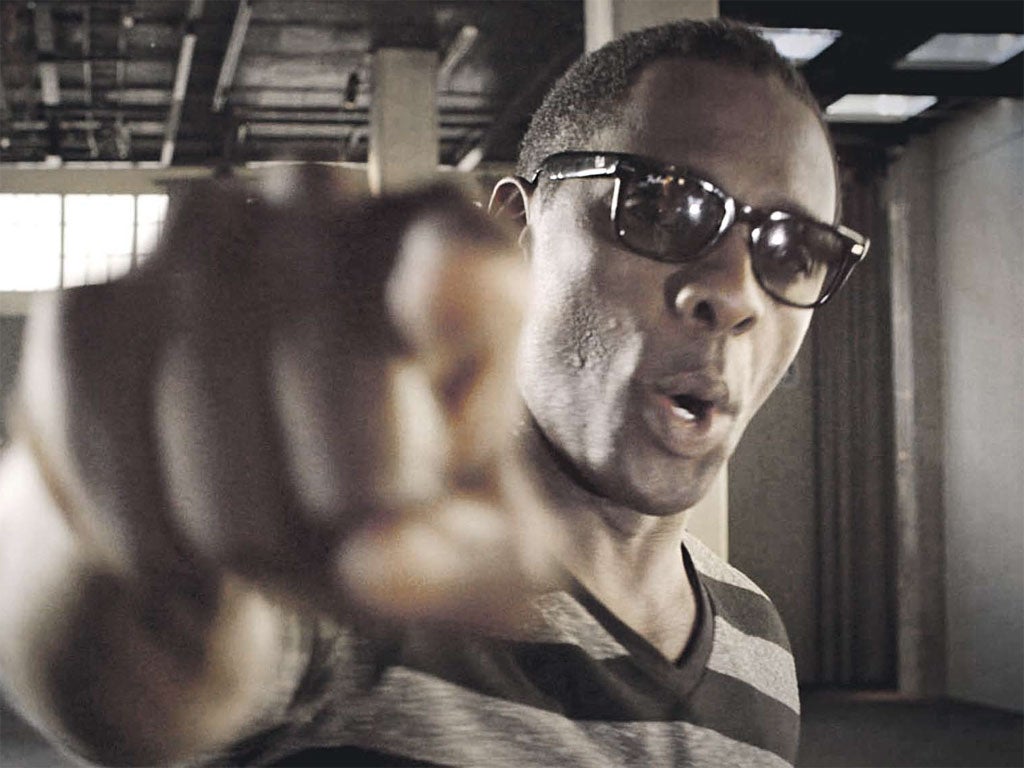Grace Dent on TV: Idris Elba's How Clubbing Changed the World, Channel 4
You watch Idris Elba in a warehouse and you pine for the deft touch of the BBC

It was around the televisual junction where Idris Elba appeared in Ray-Bans – channelling pure Mike The Cool Guy from the Young Ones – talking about "throwing some shapes on the dance-floor" where I began to question whether How Clubbing Changed The World was truly the show for me.
Lord knows, it should have been my kind of thing. The omens were strong. There is a theory in my family that the time I spent in dark nightclubs as a teenager actually stunted my growth. When it comes to watching musos deliver piffly talking-heads sound-bites over a loosely banged-together narrative, well this where my Olympian levels of endurance emerge. You know all four hours of Runnin' Down a Dream, the Tom Petty story? Sat through that. I don't even like Tom Petty. And two of those hours was just Tom's hangers-on mumbling, "so I was at home and Tom called me up and he said, 'hey you wanna come on the road and play geee-tar' and I said, 'yeah man', so I went and we haaad a hooot".
What about BBC4's Prog Rock Britannia? I've watched that three times never quite tiring of Caravan, Egg and The Crazy World of Arthur Brown quacking on about musical umbrage that was taken 40 years ago, and Emerson, Lake and Palmer travelling to gigs in their trio of personalised juggernauts. The devil is in the wonky detail. BBC4's Disco Night, if my Twitter timeline – a gloriously accurate real-time ratings heart-monitor – was anything to go by, seemed to turn Britain's living rooms into a tipsy "thank god the kids are asleep let's remember how we used to party" party.
But then one great thing about the BBC – of which there are many – is they can acquire and make brilliant television. It's tempting to forget this as we lap up the splendour of Sky Atlantic, who've signed every national-treasure-in-waiting which Britain possesses (Coogan, Ianucci, Buxton, Burke, Davis, Brand), pushed a whack of money into their thong, and said, "make what you want, no holds barred, we love you and admire your vision".
But then you watch something like Channel 4's How Clubbing Changed the World, Idris Elba in a warehouse, in his Ray-Bans, describing himself as Idris Elba "DJ" (I've always been cautious of any man with an actual proper job who describes himself foremost as a DJ ever since I was once trapped at a house party in Barnes with John Leslie, who kept shoving the CD single of "Professional Widow" by Tori Amos onto the stereo and telling us all he had a residency at the Ministry of Sound while we all scrunched our faces up and muttered, "isn't that the bloke off Blue Peter?") and you pine for the deft, authoritative touch of BBC4. "We're going to look at how clubbing is our biggest export!" shouts Cool Idris before whizzing through a section containing, Moby's Play album (never heard it in a club ever), the Wigan Casino, a recent Lucozade ad campaign, Underworld's Olympic opening ceremony, the moment Pete Waterman signed 2 Unlimited and "made Europop the soundtrack to our summer holidays!" (Pete Waterman invented this did he?), and the day U2 asked Paul Oakenfold to go on tour in 1993, which invented the concept of the superstar DJ, as until then nobody knew who the DJ was. Hang on. That's not right.
Orbital, Normal Cook and Jeremy Healy contributed. At one point the fact that women exist and made up 50 per cent of nightclub attendees was honoured by 23-year-old singer Katy B talking about listening to the radio with her mother.
Idris showed up again wiffling about All Bar One, which was INVENTED BY CLUBBING. Oh, and Ibiza, which was discovered by Danny Rampling. Which it was in a small sense, but that's just it, a small sense, not a big, bold irrefutable fact. Stuff was a bit hazy. The country's youth were taking a lot of drugs. Not that you'd know from this two hours as mention of this was minimal, in fact the script had the authority and accuracy of my GCSE coursework on the Suez Canal, which was cobbled together from "stuff I'd heard on the school bus", "wild aspersions (some harmful/offensive)" and "things copied off people dafter even than me". There is a beautiful documentary to be made here about the way the British do debauchery – as honoured by Danny Boyle and Rick Smith in the Olympic Opening Ceremony, about a myriad of socio-anthropological enigmas, like the way grey, uptight north-west England responded to Chicago house, about the glorious prancing, high-kicking, talc-festooned show-offs of the Wigan Casinos and where they all are now (covered in Algipan suffering from spinal problems), about the ardent devotees of Cream, Gatecrasher and the Sub Club, about why superclubs went the way of the dinosaur and how kids "do clubbing" now.
Instead we got Idris Elba "throwing shapes" then going to ad-breaks saying "peace". No wonder that he was wearing dark glasses.
In Matt Berry and Arthur Mathews's Toast of London: Steven Toast (Berry) auditioning for the part of a gay detective during prison visiting hours. Go and find it on 4oD.
Join our commenting forum
Join thought-provoking conversations, follow other Independent readers and see their replies
Comments
Bookmark popover
Removed from bookmarks